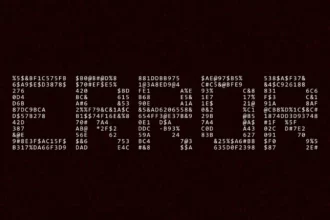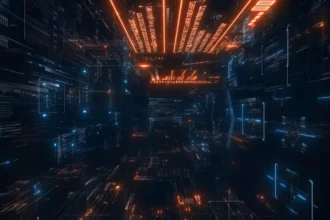Table of Contents
ToggleTimbaland’s New Artist Is Young, Photogenic — and Not Human
Timbaland introduces TaTa, an AI-generated artist launched through his new entertainment company, Stage Zero. TaTa represents a bold step into artificial pop (“A-pop”), blending AI music creation with human artistry for a new genre experience.
Stage Zero and TaTa: A New AI Music Venture
Legendary producer Timbaland co-founds Stage Zero with Zayd Portillo and Rocky Mudaliar, aiming to pioneer AI-driven entertainment. The company’s debut project, TaTa, is a virtual artist created via generative AI technology, poised to release its first single soon. Timbaland’s vision began unfolding after working with Suno, an AI music platform, which inspired this new direction.
TaTa and the Rise of A-Pop
TaTa is designed as the first of many AI personas that Stage Zero will develop. These characters are meant to evolve beyond music; the co-founders envision them as social media influencers and stars in films and TV shows. Rocky Mudaliar calls this the emergence of “A-pop” — artificial pop music shaped by AI’s creative potential.
Collaborative Creation with AI and Human Input
The music of TaTa merges human creativity with AI innovation. Timbaland and Portillo craft demos using traditional methods, then upload them to Suno’s platform for enhancement. The AI generates vocal tracks, including TaTa’s distinctive voice, captured via Suno’s Personas feature. Lyrics get human refinement to maintain artistic quality. This hybrid workflow accelerates production and customizes the artist’s sound.
| Step | Description |
|---|---|
| 1. Demo Creation | Timbaland and team produce initial music demos traditionally. |
| 2. AI Processing | Demos uploaded to Suno for AI-generated music expansions and vocals. |
| 3. Human Lyrics | Song lyrics are written and integrated by human creators. |
Industry Backlash and Legal Challenges
Stage Zero emerges amid controversy. The music industry battles over AI’s role under legal and ethical scrutiny. Major record labels sue AI platforms like Suno and Udio for alleged misuse of copyrighted material in AI training. Prominent musicians express concern about AI threatening human creativity. Despite this, settlement talks suggest possible resolution.
Outlook and Industry Impact
Timbaland and partners expect resistance but see AI music as inevitable. Rocky Mudaliar compares today’s AI backlash to past skepticism about social media influencers, now mainstream celebrities. They foresee AI artists like TaTa gaining prominence, reshaping music and entertainment landscapes.
- Stage Zero pioneers AI-generated virtual artists starting with TaTa.
- TaTa symbolizes the “A-pop” genre, combining AI and human artistry.
- Music creation blends traditional demos with Suno’s AI enhancement.
- Industry faces legal disputes but shows signs of negotiating AI’s role.
- Timbaland’s team anticipates AI artists becoming influential cultural figures.
Timbaland’s New Artist Is Young, Photogenic — and Not Human
Timbaland’s latest artist is not a person but an AI-generated musician named TaTa, born from his new venture Stage Zero. This digital diva promises a fresh sound and a futuristic vibe — an electronic pop star who’s young, photogenic, and 100% artificial.
Now, before we dive into this, imagine yourself at a concert in 2030. Lights pulse, fans scream, and on stage stands a flawless figure — but it’s not human. It’s TaTa. Sounds like sci-fi? Timbaland is making that future real today.
Let’s unpack how this AI artist came into being and why it’s a game-changer.
Stage Zero: Where AI Meets Music
Timbaland, the legendary producer known for shaping hits in the early 2000s, isn’t just dabbling in AI — he’s all in. He co-founded Stage Zero alongside Zayd Portillo and Rocky Mudaliar, aiming to create AI-based entertainment. This isn’t just about catchy beats; it’s a new frontier in how art and technology blend.
Timbaland’s journey began last year when he experimented with an AI music platform called Suno. “I saw the path,” he tells Rolling Stone, hinting he’d been waiting for tech and culture to catch up with his vision.
The result? TaTa — an AI artist ready to drop her debut single, join social media, and maybe even star in movies and TV. Think of TaTa as the first sensorium of “A-pop,” or artificial pop — a completely new genre promising endless possibilities.
Meet TaTa: The AI Pop Star of Tomorrow
TaTa isn’t just a gimmick. Her creators see her as a virtual influencer, a music star, and a digital personality rolled into one. Imagine influencers who don’t need coffee breaks, who never age, and whose image is perfectly curated 24/7 thanks to AI video tools—TaTa fits that mold.
The genius of this project lies in blending human creativity with AI muscle. Timbaland and his partner Portillo upload their traditional demos to the Suno platform. The AI takes it from there, expanding the beats and melodies, while human lyricists add the soul through words.
TaTa’s voice even started as a Suno-generated sound, which Timbaland spotted for its uniqueness. He hooked that voice into Suno’s Personas feature — a kind of vocal fingerprint — allowing them to “reuse” it with different vibes across songs. It’s an entirely new way to produce music, where speed and unpredictability are plugged in side by side.
Collaborative Creativity: Who’s the Boss, AI or Human?
The process doesn’t sideline humans. Instead, it’s a collaboration. Timbaland compares it to having a co-producer with superpowers. This brings to question: Is AI creativity real or a tool? Here, it’s more about synergy than competition.
Zayd Portillo describes it like this: “We have these stacks of music that needed to be finished. The TaTa tracks just happened to flow quickly.” To him, it wasn’t magic, but a smooth interplay of human and machine talent.
The Elephant in the Room: Industry Pushback on AI Music
Not everyone is cheering. The music industry’s reaction has been mixed, teetering on downright hostility. Major labels and legendary musicians are pushing back hard, filing lawsuits against AI platforms like Suno and Udio. Why? Copyright concerns and the belief that AI threatens human creativity’s core.
Billie Eilish and Stevie Wonder aren’t fans of AI music tools, signing open letters warning this tech might undercut the artistry and soul behind music.
The tension is real. But Timbaland and his team don’t see the backlash as a dealbreaker. Rocky Mudaliar likens this to how “influencers” once sounded absurd but have since become massive stars. They believe AI artists could similarly disrupt traditional paths and become cultural giants.
Will AI Stars Rule the Future of Music?
The question hangs in the air: Is TaTa a novelty or a harbinger of a vast new entertainment era? If the early signs are anything to go by, this AI artist might redefine the music industry.
For artists and creators, there’s a lesson here. AI isn’t replacing talent; it’s evolving alongside it — offering tools to speed up workflows and spawn new creative directions. Who wouldn’t want a collaborator that never sleeps and can remix your ideas in seconds?
For fans, TaTa represents a new kind of star — flawless, persistent, and endlessly customizable. But does that make her relatable? Or will fans crave the messy, imperfect humans behind the music even more? It’s an open question for the future.
Practical Takeaways & Final Thoughts
- Music creators: Consider integrating AI tools like Suno to boost productivity. They can spark fresh ideas and finish tracks faster.
- Industry watchers: Watch the legal landscape as lawsuits simmer but settlements appear to be in play. AI ventures are here to stay.
- Fans: Be open-minded. It might seem strange now, but AI-created artists could dominate streaming charts before you know it.
Timbaland’s latest innovation is a bold leap blending human and artificial creativity. By launching TaTa and Stage Zero, he isn’t just making music; he’s crafting a prototype for the future.
Will TaTa hit the high notes or fall flat? Only time and tons of AI-generated beats will tell. But one thing’s for sure — the pop star of tomorrow might just be a code, not a human.
What is Stage Zero and who is TaTa?
Stage Zero is Timbaland’s new AI entertainment company. TaTa is their first AI-generated music artist planned to debut soon. The project combines AI with human creativity to pioneer a new genre called A-pop.
How is TaTa’s music created?
TaTa’s music stems from a collaboration between humans and the AI platform Suno. Timbaland uploads his demos, the AI extends them, then humans add lyrics. TaTa’s distinctive voice comes from Suno’s Personas feature.
What kind of future do the creators envision for TaTa?
TaTa is planned to be more than a singer. The founders want AI artists to act as virtual influencers. These characters might star in movies and TV shows, expanding AI’s role in entertainment.
Why is there backlash against AI music like TaTa’s?
Many artists and labels oppose AI tools due to copyright issues and threats to traditional creativity. Lawsuits target companies using unauthorized copyrighted material for AI training. However, some settlements may be underway.
How do Timbaland and his team view the resistance to AI music?
They expect the backlash to fade over time. They compare AI artists to past doubts about social media influencers. The team believes AI music will become a natural and accepted part of the industry.




